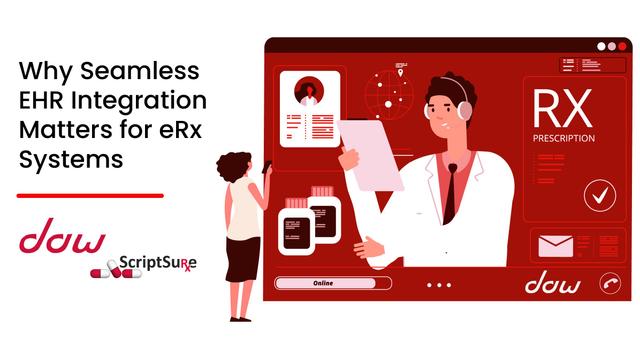For today’s healthcare practices, adding new technology should improve workflows—not complicate them. Yet, when an e-prescribing (eRx) platform doesn't integrate well with your electronic health record (EHR), the result is often inefficiency, frustration, and even patient safety risks.
Whether you're switching systems or adopting e-prescribing for the first time, EHR integration is no longer optional—it’s essential.
Here’s why.
What EHR Integration Really Means
EHR integration isn’t just about connecting two platforms—it’s about enabling real-time communication between systems.
- A truly integrated eRx platform will:
- Sync patient records, allergies, medication history, and labs
- Tie prescriptions directly to clinical encounters
- Allow providers to stay within their primary workflow—without toggling between apps
Some platforms claim to integrate but only offer manual file exports or limited data visibility. That’s not integration—it’s fragmentation.
The Benefits of EHR-Integrated eRx Platforms
Here’s how seamless integration translates into real-world value:
1. Fewer Errors and Safer Prescribing
Auto-synced allergies and drug interactions mean safer choices at the point of care.
2. Time Savings for Staff and Clinicians
No more copying and pasting between systems or repeating data entry.
3. Streamlined Workflows
Prescriptions flow directly from the patient chart—no need to re-enter data.
4. Better Patient Experience
Fewer delays, fewer call-backs, and prescriptions ready faster.
5. Easier Onboarding
If your team already knows the EHR, integrated eRx tools feel familiar—reducing learning curves.
What Happens Without Integration
Disjointed systems create unnecessary friction:
- Medication errors due to missing or outdated data
- Workflow slowdowns from repetitive entry
- Compliance risks when DEA/EPCS features aren’t synced
- Low adoption due to poor user experience
- Hidden costs from workaround inefficiencies
In short: what should be a streamlined process becomes a source of daily friction.
How ScriptSure Handles Integration
At DAW Systems, we know integration is a top priority. That’s why ScriptSure supports multiple deployment models, including:
- Standalone eRx Platform for fast setup without an EHR dependency
- Embedded Solutions for use within top EHRs via lightweight API
- Custom Integration Support for advanced clinics or specialty use cases
ScriptSure’s cloud-based architecture means faster updates, seamless syncing, and minimal IT lift—ideal for practices with limited tech resources.
What to Ask an eRx Vendor About Integration
Before choosing an e-prescribing platform, make sure to ask:
- Does this work natively with my current EHR?
- Is patient data shared in real time?
- Can I access CDS tools within my EHR environment?
- How are updates managed—automatically or manually?
- Who handles setup, and what does onboarding look like?
If they can’t answer clearly, keep looking.
Conclusion: Integration Is More Than a Feature—It’s a Strategy
Choosing a poorly integrated eRx system will slow your team down. Choosing the right one will make prescribing faster, safer, and more compliant—without disrupting your workflow.
With ScriptSure, you don’t have to choose between flexibility and integration. You get both.


